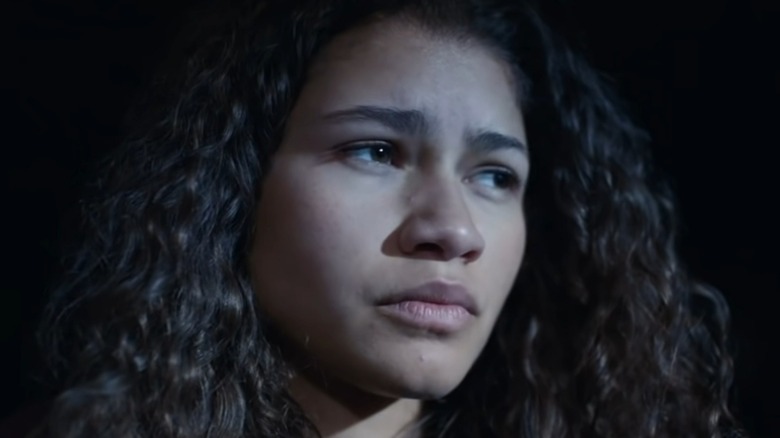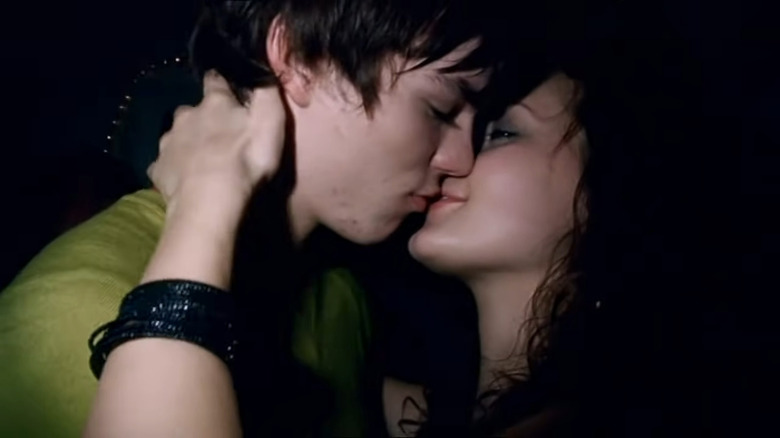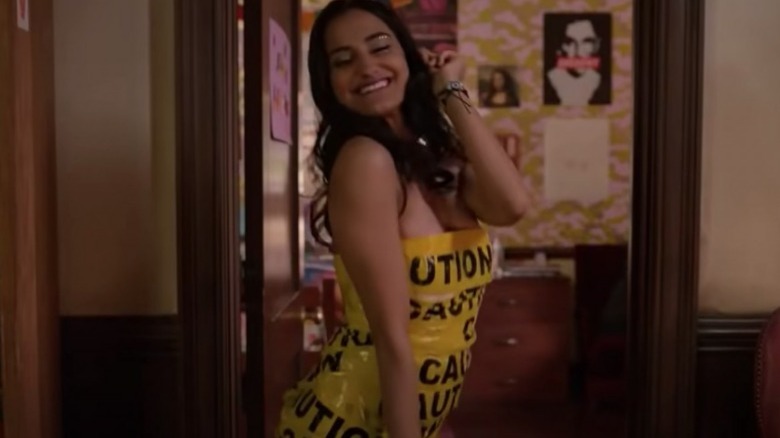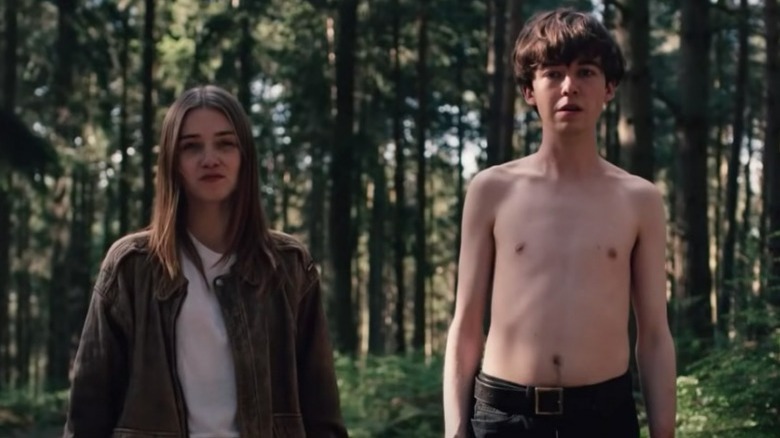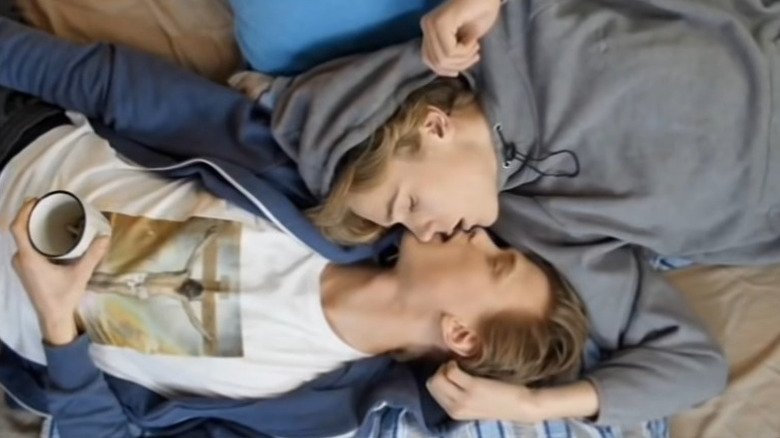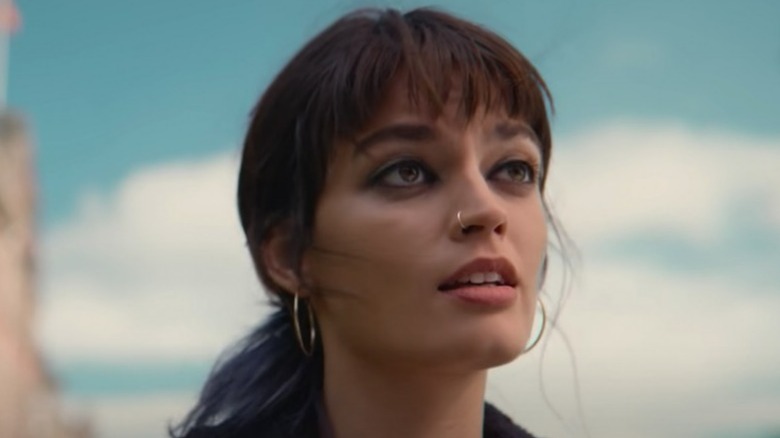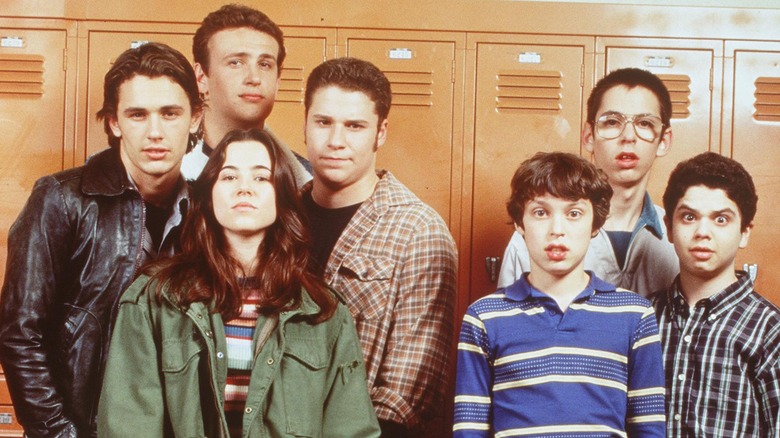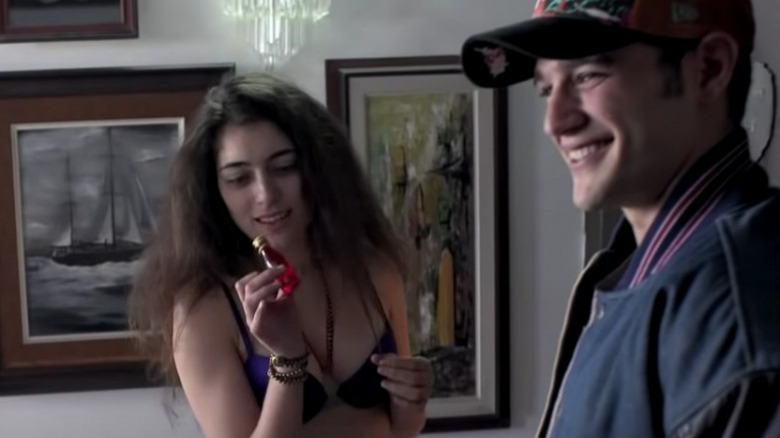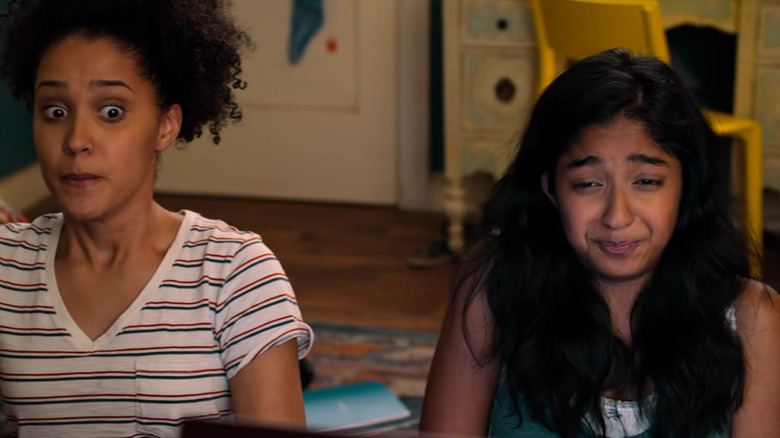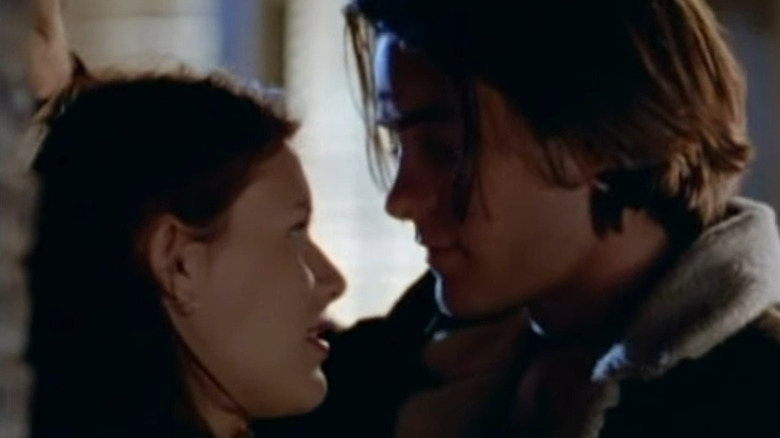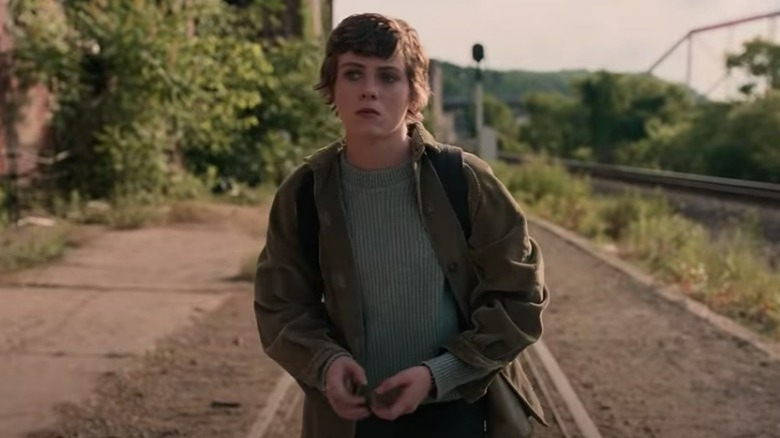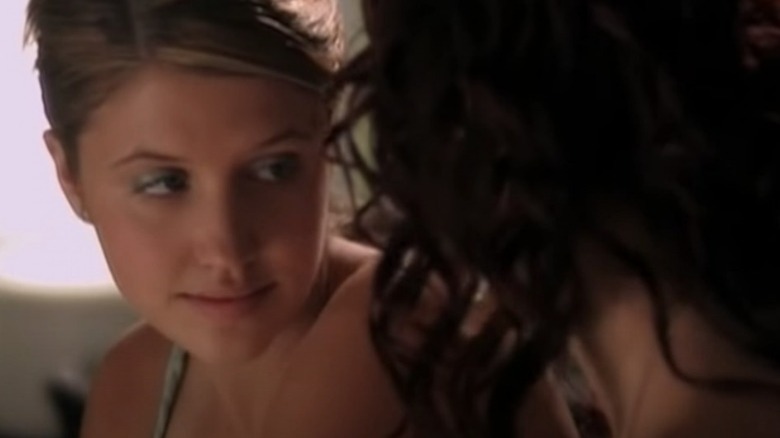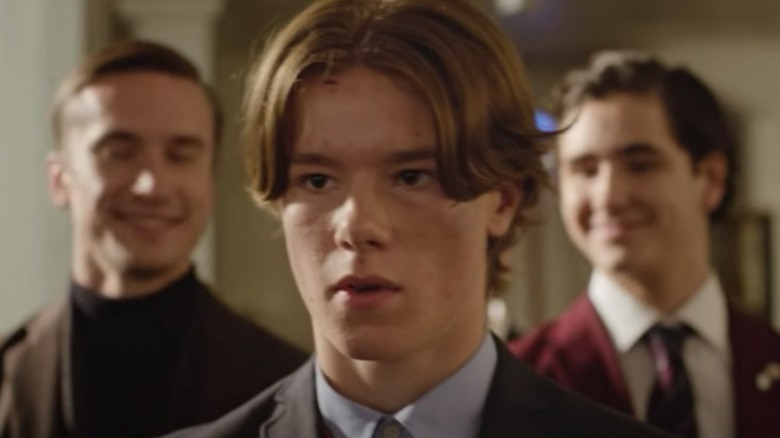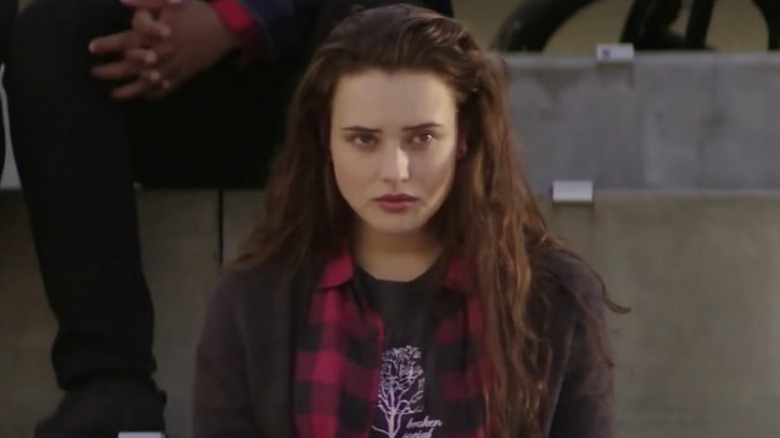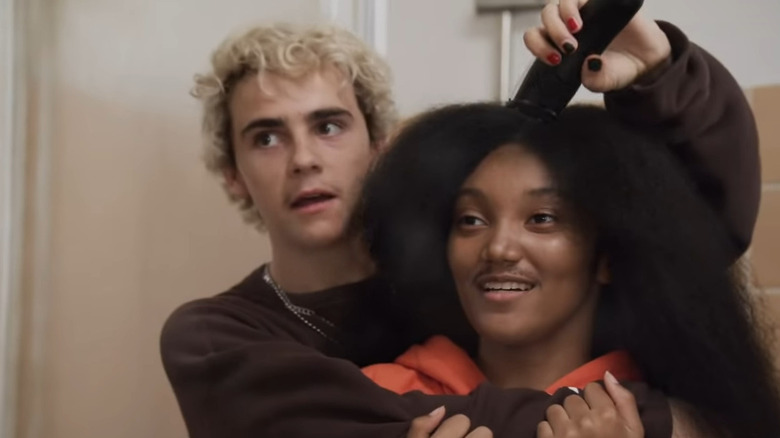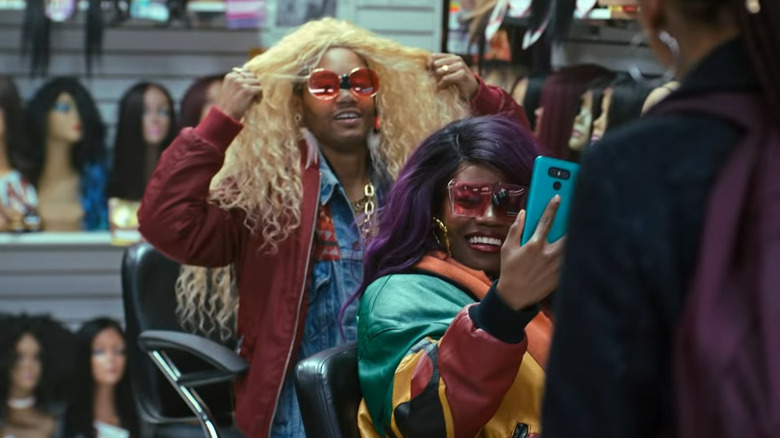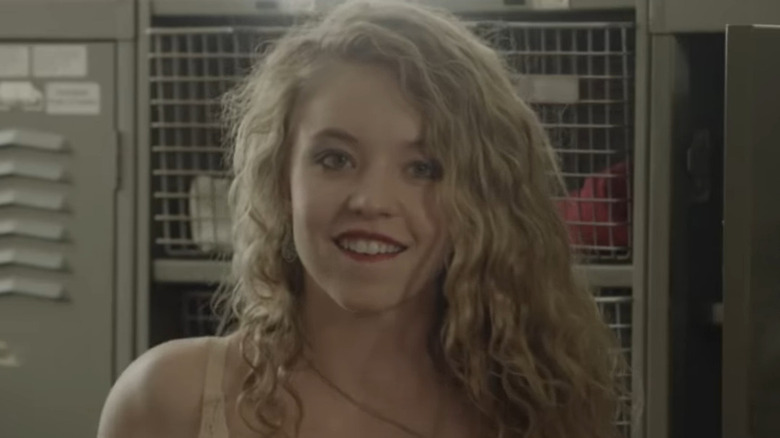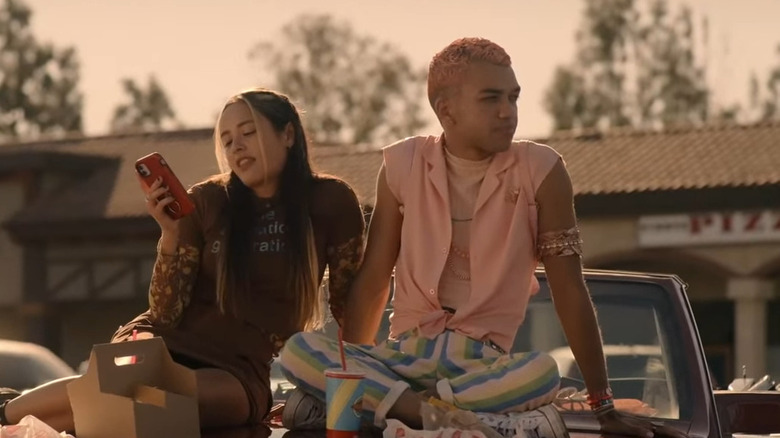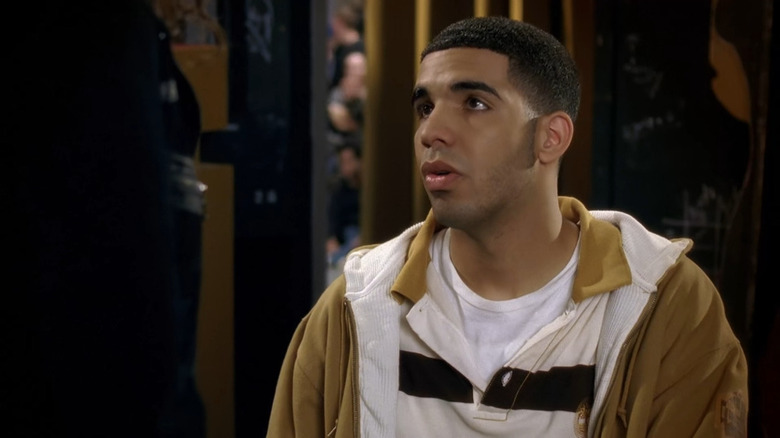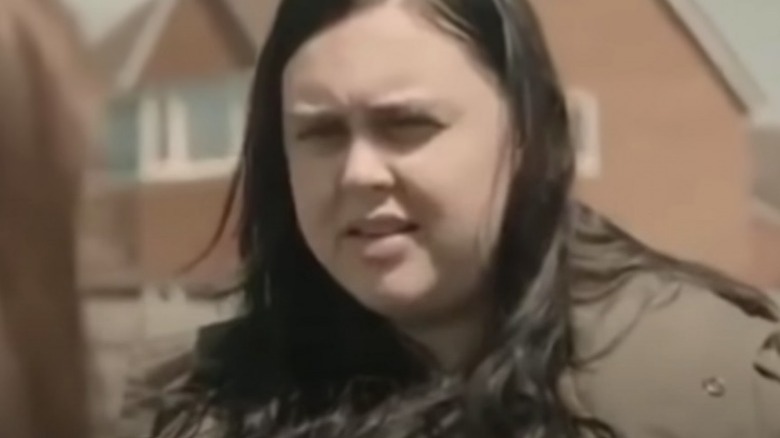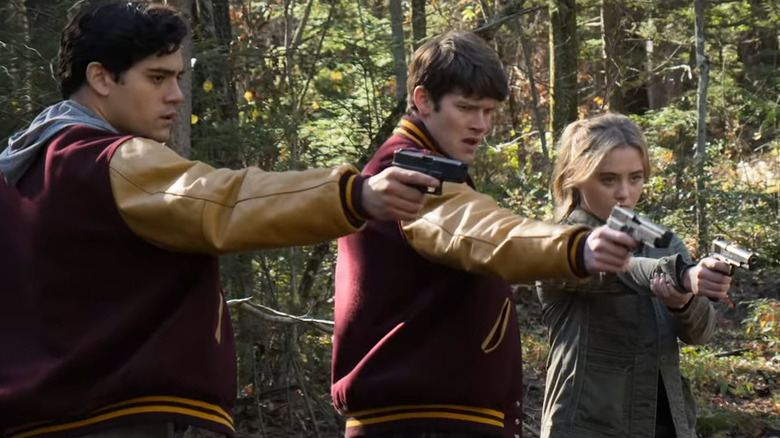20 Shows Like Euphoria You Should Watch Next
In 2019, audiences were first introduced to the world of "Euphoria," where everything is a bit bigger. Sam Levinson's series (loosely adapted from an Israeli series of the same name) follows 17-year-old Rue (Zendaya), fresh out of rehab and struggling with both addiction and the grief of her father's death. Rue befriends Jules (Hunter Schafer), a new girl in town, and the two of them struggle to manage the ups and downs of high school — and all the pleasure, pain, sex, drugs, and electronic music that comes with it.
"Euphoria" is both stylized and character-driven as it taps into the intensity of adolescence. The show straddles the line of self-destruction and self-celebration, darkness and lightness, and its emotional, gritty approach has hooked people of all ages. For some, "Euphoria" taps into the nostalgia of youth (and all its stresses) while for others, it may offer a wish fulfillment of the fantasy world that many had as teenagers. Its second season debuted in January 2022 and has brought viewers even deeper down the rabbit hole with Rue, Jules, Fezco, Nate, Maddy, and the rest. If you're a fan of "Euphoria," read on to find out what other shows might give you that euphoric hit.
Skins
Before there was "Euphoria," there was "Skins," a British teen show about a group of friends living, laughing, loving (and drinking and partying and crying). Created by father-and-son writing team, Bryan Elsley and Jamie Brittain, "Skins" follows a different group of friends for two seasons. Each episode focuses on a different character, as they all deal with the realities and fantasies of adolescence. While the "Skins" kids love to party, they also explore the depths of their existence as they deal with heartbreak, grief, and mental health issues.
"Skins" is the closest relative of "Euphoria" (its very cool, occasionally passed out parent) as it too embodies that perfect mix of the lightness and darkness of adolescence. "Skins" captures the big emotions of youth that are sometimes funny, sometimes sad, and always engrossing to watch. Part of the reason "Skins" works so well is that it not only features real teenagers (like Nicholas Hoult, Hannah Murray, and Joe Dempsie) but is written by teens as well (like Daniel Kaluuya). The show was created after Brittain told his father to (per The Guardian) "write a show about teenagers, but one that actually means something," which is exactly what "Skins" and is — and this makes it a must-watch for any fan of "Euphoria."
The Sex Lives of College Girls
On the surface, Mindy Kaling and Justin Noble's "The Sex Lives of College Girls" may seem like the opposite of "Euphoria." In many ways, it is — but ultimately, this is a real and grounded show about the lives of young people, which can make it appealing to "Euphoria" fans. The series follows four college freshmen sharing a suite: Bela (Amrit Kaur), an Indian-American woman who wants to write comedy and have a lot of fun sex; Kimberly (Pauline Chalamet), a seemingly naïve small-town girl who struggles to balance schoolwork, her job, and love life; Leighton (Reneé Rapp), a wealthy mean girl living a double life; and Whitney (Alyah Chanelle Scott), a senator's daughter and star soccer player who's caught up in an affair with her coach.
It's a tale as old as time -– people from all walks of life finding common ground and friendship –- and this element of diverse storylines aligns "The Sex Lives of College Girls" with "Euphoria." "The Sex Lives of College Girls" is tonally different, as it's more of a laugh-out-loud comedy, but it also tackles more serious issues like sexual assault, homophobia, and class differences. This grounding in reality plus its stellar cast elevates it to something more than just a sitcom with a wacky title, and makes it a nice antidote to the often stressful, anxiety-inducing experience of watching "Euphoria."
The End of the F***ing World
While adolescence offers more than enough in the way of questions of identity, "The End of the F***ing World" takes this to an extreme with its focus on a teenage boy who thinks he's a psychopath. 17-year-old James (Alex Lawther) feels like there's something different about him, as he loves killing animals, and wants to explore his psychopathy. He decides to kill a human and picks his target: Alyssa (Jessica Barden), a rebellious teen with a chaotic home life. The two embark on a road trip where James intends to kill Alyssa — but things don't quite go according to plan, as they fall for each other instead.
Based on Charles Forsman's comics of the same name, this series explores the adolescence in a different way, and navigates the darkness and violence with a light touch. It takes James and Alyssa seriously, allowing viewers to enter their world without judging them. The characters and their relationship develop in a sincere way. Whether a sociopath or simply an angsty teen, high school can feel like an impossible time to navigate — and sometimes, the only way to do so is to find someone who speaks your language. In "Euphoria," Rue discovers this kindred spirit in Jules, and in "The End of the F***ing World," James and Alyssa find it in each other.
Skam
In the world of young adult or teenage content, there are various subcategories like the "fun but dark, stylized, party world" genre of shows like "Euphoria" and "Skins." Julie Andem's Norwegian series, "Skam" ("Shame" in English) fits right into that category. It follows the trials and tribulations of a group of beautiful Norwegian teens who love to party and listen to really good pop and dance music. Each season of "Skam" focuses on a different protagonist of a friend group: Eva (Lisa Teige), Noora (Josefine Frida Pettersen), Isak (Tarjei Sandvik Moe), and Sanaa (Iman Meskini) all make their way through the pleasures and pains of love, identity, religion, and sex.
Like "Euphoria," "Skam" is very much made for a social media age. In fact, this is the driving force behind the series' worldwide success: Clips would be released online leading up to weekly episodes and characters all had prominent social media personas, which allowed fans to engage with the series in a variety of ways. Creator Julie Andem did extensive research, interviewing teenagers in order to ground the show in the reality of being a teen in the 21st century — a big part of what makes the show so appealing. Sure, some details of modern-day adolescence differ from the pre-internet and pre-social media experience of adolescence but ultimately, teenagers are dealing with the same age-old questions about love, heartbreak, self-image, friendship, and identity. If you're looking for "Euphoria" with subtitles, then "Skam" is the show for you.
Sex Education
"Sex Education" is a British series that takes a gentler approach to teen life than "Euphoria," but still makes use of similar spaces of friendship, love, and family. "Sex Education" centers around Otis (Asa Butterfield), a teenage boy whose mother, Jean (Gillian Anderson), is a renowned sex therapist. Otis struggles to distance himself from his mother but he can't help but take in some of her knowledge, so he starts a sex education clinic at his school. It's a way of educating his hapless peers and getting close to his crush, Maeve (Emma Mackey), a clever student who's looking to make some money and make a life outside this small town.
While "Sex Education" is about sex and the self-discovery that comes with it, it's really a show about friendship as Otis and others discover where they fit in the constellations of people in their worlds. Otis' best friend Eric (Ncuti Gatwa) is an out and proud gay man who falls for Adam (Connor Swindell), a bully who is closeted, while lone wolf Maeve opens herself up to both Otis and Aimee (Aimee Lou Wood), a popular girl with a heart of gold. "Sex Education" doesn't have the chaos of "Euphoria" but it does offer a realistic, emotional look at adolescence, as all the characters do the best they can to figure themselves out in sometimes confining spaces and circumstances.
Freaks and Geeks
One of the strengths of "Euphoria" is that it captures a time and moment -– no one is mistaking these teens for 1950s kids –- and Paul Feig's "Freaks and Geeks" does the same. Produced by Judd Apatow, the 1980-set "Freaks and Geeks" follows Lindsay Weir (Linda Cardellini), a former nerd who falls in with her school's group of "freaks" (James Franco, Seth Rogen, Jason Segel, and Busy Phillips) while her younger "geek" brother, Sam (John Francis Daly), tries to survive high school with his two best friends (Samm Levine and Martin Starr).
Both "Freaks and Geeks" and "Euphoria" share an investment in their characters and a realistic look at the teenage experience. "Freaks and Geeks" stands out for its compassionate view of adolescence; while a number of scenarios are painful and laugh-out-loud funny (i.e. when Lindsay and friends get "drunk" off beer that they don't realize is non-alcoholic), the characters are never the punchline of the jokes. "Freaks and Geeks" only lasted for one season, but it has remained a cult hit and critically acclaimed for this reason. It's a time capsule in all senses, as it showcases both the '80s and also the specific time of high school — with all of its joys and pains. It's a bittersweet experience to revisit that with the gang of McKinley High.
Euphoria (Israeli Version)
The original "Euphoria" first aired on Israeli TV in 2012. Set in the '90s, the series focuses on a group of middle class teenagers: Hofit (Roni Dalumi), the young woman struggling with an intense drug addiction (and the basis for Rue); Osher (Maor Schwitzer), a guy who's addicted to porn and working out; and Noy (Amit Erez), a girl with body dysmorphia who falls deep into a labyrinth of casual sex.
The Israeli "Euphoria" only aired for one season and, while there are some parallels with the storylines of the American version, the two shows are actually quite different. The Israeli "Euphoria" is stylized differently, with long, haunting shots of characters biking through town, and a sense of grittiness that places it in a darker, more naturalistic space. Co-creator, writer, and director Daphna Levin, described the essence of the show: "Growing up is a trauma, any way you experience it ... all of us –- the sobbers, the stoned, the fat –- dealt with these mini-traumas. It's excessive but familiar" (via The Face). "It's excessive but familiar" could be the mantra of either version of "Euphoria" — and while both shows deal with this differently, it's worth exploring the original to see a more grounded, empathetic approach to that familiar teenage excess.
Never Have I Ever
If "Euphoria" is the cool, troubled, popular kid, then "Never Have I Ever" is its dorky, sincere, new-year-new-me cousin who's just transferred to school and surprises you with their deep insights. Created by Mindy Kaling and Lang Fisher, "Never Have I Ever" focuses on Indian-American Devi Vishwakumar (Maitreyi Ramakrishnan), a sophomore dealing with the sudden death of her beloved father. Devi's grief is catching her in unexpected ways –- like making her lose the use of her legs for three months –- and she's also trying to do an overhaul of her identity to become the cooler, "better" version of herself. Devi juggles multiple love interests, evolving friendships with her BFFs Eleanor (Ramona Young) and Fabiola (Lee Rodriguez), and tensions with her mother, Nalini (Poorna Jagannathan).
Based on Kaling's experiences, "Never Have I Ever" is a straightforward comedy with quite a bit of depth. Devi's desire to transform and distance herself from her lame freshman year self is recognizable to many, but the weight of her grief adds a more serious element to the series. Like "Euphoria," "Never Have I Ever" is a far cry from the extremely white and straight teen shows of the past. It offers a powerful look at a diverse cast of characters who are struggling with issues of love, sexuality, and race — all while trying to have fun. The show isn't dark or gritty like "Euphoria," but it is a total delight to watch and a welcome addition to the teen drama canon.
My So-Called Life
In the world of authentic teen dramas, one can't get very far without mentioning "My So-Called Life." Winnie Holzman's 1994 show brings viewers into the world of 15-year-old Angela Chase (Claire Danes), an introspective teen who's exploring life with some new friends, the loyal wild child Rayanne (A.J. Langer), and sensitive gay guy Rickie (Wilson Cruz). Angela pines for her (and everyone's) Number One Crush, Jordan Catelano (Jared Leto), as she navigates the complexities of high school, family life, and being a teen in the '90s.
"My So-Called Life" aired just for one season but has remained a beloved and influential show for decades now. People of all ages have continued to resonate with Angela, who's just trying to figure it all out. Angela's parents, Patty (Bess Armstrong) and Graham (Tom Irwin), are as much of the story as the teenagers, which sets this series apart from other teen shows that often treat parents as anonymous or pointless. "Euphoria" takes a similar approach as Nate's father, Cal (Eric Dane), features prominently in the series — but unlike "Euphoria," "My So-Called Life" is centered in a much more naturalistic and softer space. The series stood out in the '90s for its depictions of real teens with real issues like homelessness, HIV, and drug use — and its treatment of all of this holds up. It's not flashy or glamorous like "Euphoria," but ultimately, it's a complex show that captures the layers of life.
I Am Not Okay With This
There is a long line of teenage superhero dramas –- "The Misfits," "Umbrella Academy," and "Marvel's Runaways" -– using the big emotions of adolescence are a natural fit for the largeness of superpowers. "I Am Not Okay With This" joins the fray as it focuses on Sydney (Sophia Lillis), a 17-year-old who discovers she has telekinetic powers following the sudden death of her father. Sydney is struggling with the further loss of her best friend, Dina (Sofia Bryant), who's now dating a dumb jock, and so she befriends Stanley (Wyatt Oleff), a sarcastic and weird kindred spirit.
"I Am Not Okay With This" is based on an eponymous comic by "The End of the F***ing World" creator, Charles Forsman, and has a similar dark energy mixed with black humor. The series centers around Sydney and Stanley, much in the way that "Euphoria" focuses on the growing relationship between Rue and Jules. However, "I Am Not Okay With This" uses the superhero element to delve into Sydney's identity and changing sense of self, which plagues all teenagers differently. For her, it's in the discovery of her telekinetic powers as a vessel for her anger — while for Rue, it's in the transformation of herself and the world that she can access through drugs. If you're looking for a "Euphoria" with a superhero vibe, look no further than "I Am Not Okay With This."
South of Nowhere
Thomas Lynch's "South of Nowhere" premiered in 2005 on The N, a teen/tween educational programming block on The Noggin, which was a joint channel between Nickelodeon and Sesame Workshop. In spite of the kid-friendly backing, "South of Nowhere" is a sometimes sexy, sometimes real look at finding your way as a teenager. The series follows the Carlin family, which moves from Ohio to Los Angeles: Spencer (Gabrielle Christian) is the youngest, a sweet, curious girl who befriends the bisexual Ashley (Mandy Musgrave) and questions her sexuality; Clay (Danso Gordon) is the middle child, an African-American star student who was adopted by the Carlins; and Glen (Chris Hunter) is a hot-shot athlete who loses himself after an injury leads to a painkiller addiction.
"South of Nowhere" is a mix of "90210" and an after-school special, but it does stand out for its depiction of a serious relationship between two young women. Spencer's sexuality isn't an issue of the week nor is her relationship with Ashley just used for ratings, which was a bit unheard of in 2005 when shows like "The OC" did just that with Marissa and Alex. This centering of the developing relationship between two women –- one that starts as friendship and evolves into something deeper and more intimate –- aligns "South of Nowhere" with "Euphoria," even if the series itself is a cheesier and lighter affair.
Young Royals
Sweden's addition to the teen drama canon comes in the form of "Young Royals," a Netflix show about a young prince who discovers who he is outside of the protected walls of the palace. The series follows Prince Wilhelm (Edvin Ryding), who gets sent to boarding school after one of his wild nights out gets blasted on social media. The school is filled with wealthy, entitled students like him, but he's still an outsider as a member of the royal family — and as someone who's secretly gay. Wilhelm falls for Simon (Omar Rudberg) and, as the two start exploring their feelings and relationship, Wilhelm discovers parts of himself that he never knew.
"Young Royals" focuses on the age-old dilemma of feeling like an outsider as a teenager. Even people like Wilhelm, who seem to have it all, struggle with that position. The series features shiny, glossy parties –- much like "Euphoria" –- but also brings viewers on the rollercoaster that is often young love, especially when faced with such pressure to be someone else.
13 Reasons Why
Brian Yorkey's "13 Reasons Why," based on Jay Asher's book of the same name, goes deep into the world of bullying, violence, and judgment that can lead people to self-harm. The series follows Clay (Dylan Minnette), a teenager reeling from the aftermath of his friend and love, Hannah (Katherine Langford), committing suicide. Hannah leaves Clay a box of 13 cassette tapes, in which she goes into detail about the people and events responsible for her decision to end her life. A number of people are implicated as the series looks into the question of how our actions can affect others, often in ways we don't (or don't care to) realize.
"13 Reasons Why" lives in the shadow world of adolescence, where a sense of responsibility can sometimes be misplaced. While some characters are too careless with their actions, others fixate too much on the actions of other people. It creates this toxic space where people are left feeling isolated, helpless, and forced to fend for themselves. Hannah's death is known from the beginning of the series, which doesn't make it any easier to watch, and a dark cloud overhangs the show as you watch events build and build to lead to this tragedy. It's a realistic look at what can happen in adolescence, as images of ourselves and others can get distorted and skewed beyond recognition.
If you or anyone you know is having suicidal thoughts, please call the National Suicide Prevention Lifeline at 1-800-273-TALK (8255).
We Are Who We Are
Luca Guadagnino's miniseries, "We Are Who We Are," brings the American teen experience to an army base in Italy. 14-year-old Fraser Wilson (Jack Dylan Grazer) moves to an Italian military base with his mothers (played by Chloë Sevigny and Alice Braga). There he meets Harper Poythress (Jordan Kristine Seamón), a fellow teen who's confidence masks her inner struggle with gender. The two become fast friends and embark on the rollercoaster of teenage life in a beautiful Italian setting.
Guadagnino –- known for films like "I Am Love" and "Call Me By Your Name" -– brings his unique style and eye for beauty to the adolescent worlds of Fraser and Harper. Guadagnino told The New York Times that he wanted to rely on Grazer and Seamón as "creative forces" to determine how their characters would be in the world because ultimately, he wanted "to feel and touch the breath of life coming from these people" and "follow the characters." The result is a vibrant show that breathes a life of its own in a different way from "Euphoria," as it captures the pleasures, openness, and self-discovery of youth in a way that perhaps only Guadagnino (and Italy) can.
Grand Army
"Grand Army" brings audiences into a slice of life at Grand Army High School, a public school in Brooklyn. The series follows a group of students -– Joey (Odessa A'zion), Dom (Odley Jean), Sid (Amir Bageria), Jayson (Maliq Johnson), and Leila (Amalia Yoo) -– as they deal with issues of race, class, sexuality and struggle to balance their school lives with the outside world. These characters, who exist in different cliques, are brought together by a bomb that's detonated nearby, which puts them together in lockdown.
"Grand Army" focuses on difficult issues that teens can face. It's not so invested in fun the way "Euphoria" is, but rather takes a more somber approach to the realities that young people –- especially people of color –- have to deal with both inside and outside school walls. Like "Euphoria," the series shines with a diverse cast of newcomers –- Odley Jean in particular stands out as Dom, the daughter of a Haitian immigrant who dreams of becoming a therapist. While the series was canceled just after one season, it offers a lot of rich material within its nine episodes.
Everything Sucks!
Ben York Jones and Michael Mohan's "Everything Sucks!" joins the storied group of teen shows canceled after one season. The series revolves around Kate (Peyton Kennedy), a theater kid who starts discovering her sexuality after falling for fellow drama club member, Emaline (Sydney Sweeney). Kate befriends Luke (Jahi Di'Allo Winston), a freshman in the A/V club and an aspiring filmmaker who dreams of joining forces with the drama club to make a movie.
Set in 1996, the show captures the nostalgia of being a teen in the '90s, while exploring issues like sexuality, fantasy, and friendship. Kate's self-discovery is rendered with compassion rather than with melodrama, and her relationship with Emaline makes for one of the more positive lesbian couples on TV. Fans of "Euphoria" may be delighted to see Sydney Sweeney in this sweeter, gentler role — one that puts her in a different space from the one she occupies as Cassie in "Euphoria." Luke is a teenager with dreams, determined to make his fantasies come true, and this can be said for the series as a whole — all of the characters learn to dream bigger and strive for what they deserve.
Genera+ion
"Genera+ion" combines both "Euphoria" and "Skins" to take a look at the real lives of modern day teenagers living in Orange County, California. Created by 19-year-old Zelda Barnz and her father Daniel Barnz (and produced by Lena Dunham), the series attempts to be a snapshot of youth today as teenagers deal with age-old teen problems (pregnancy, sexuality, and identity) using more modern tools (Google, social media, and smart phones). The show follows a group of friends like Chester (Justice Smith), who challenges his school's gendered dress code, Arianna (Nathanya Alexander), a semi-homophobic entitled rebel, and Greta (Haley Sanchez), an introvert who's struggling to deal with her mother's deportation.
"Genera+ion" tries to explore the different realities of characters by occasionally showing the same moment from multiple perspectives, like a teenage "Rashomon." Since it's a look at the current experience of high school, the series relies heavily on cell phones and social media to flesh out the characters and drive the story forward, which it often does to good effect. The strength of "Genera+ion" lies in its treatment of sexuality, which sometimes feels more aligned with what teens actually go through than something like "Euphoria." The series straddles the line between excessive and insecure, which makes it a good companion show to watch after "Euphoria."
Degrassi: The Next Generation
The beauty of the teen drama is that, while there are specifics that change based on a culture or country, there are many shared commonalities of the teenage experience that allow this genre to transcend borders. Canada's major contribution to the genre began in 1979, with Kit Hood and Linda Schuyler's ensemble teen drama, "Degrassi," which became a franchise. 22 years later, "Degrassi: The Next Generation" premiered and this installment of the "Degrassi" universe is the most aligned with "Euphoria."
"Degrassi: The Next Generation" centers around a mixed group of friends and foes at Degrassi High: Paige (Lauren Collins), a queen bee and closeted bisexual; Spinner (Shane Kippel), the lonely and love-starved class bully; and Jimmy (Drake), a basketball star who's paralyzed after a school shooting. Like its predecessors, "Degrassi: The Next Generation" combines a bit of melodrama with real issues to explore things like sexuality, eating disorders, bullying, homophobia, and substance abuse. While the show is often cheesy, it's also addictive and can suck viewers into the world of these characters, who are all just trying to figure it out. If "Euphoria" is late night, "Degrassi: The Next Generation" is the after school special.
My Mad Fat Diary
The British series "My Mad Fat Diary" brings audiences to mid-1990s England, where 16-year-old Rae (Sharon Rooney) returns home after a four-month stay in a psychiatric ward. Unbeknownst to her friends, a suicide attempt brought Rae to the ward, and so she tries to assimilate back into her old life without letting anyone know about her mental health struggles. Rae reconnects with her best friend, Chloe (Jodie Comer), who is cool and the epitome of an idealized type of beauty, or so Rae thinks. Rae uses her diary to express the inner life she's terrified to share with her friends and soon discovers that everyone is hiding something –- fear, insecurity, anxiety -– behind their shiny social masks.
"My Mad Fat Diary" offers a non-judgmental look at a teenager's mental health and sexuality. Rae is as positive as she is self-loathing. While there are moments that might have led another show to poke fun at her or demean her, "My Mad Fat Diary" instead treats its characters with compassion and seriousness. Rae is unapologetic about her sex drive as she pursues love and pleasure in a way that doesn't feel so dark or bleak as that in "Euphoria." Rooney and Comer (who would later star in "Killing Eve" as Villanelle) shine in their nuanced, complex performances of young women living in a world that more often than not demands that they be someone else.
If you or anyone you know is having suicidal thoughts, please call the National Suicide Prevention Lifeline at 1-800-273-TALK (8255).
The Society
"The Society" is a series that answers a question that perhaps many have had: What would happen if you combined "Lord of the Flies" with "Euphoria"? "The Society" is about a group of teens who return from a field trip to discover that everyone in their town is gone. They're forced to create their own rules and form a functioning community as the outside world seemingly disappears — their town is now surrounded by a forest, and there's no way to contact anyone through phone or internet. Initially led by Cassandra (Rachel Keller), this teen community quickly starts evolving and transforming as the characters adjust to this new reality.
Unlike "Euphoria," "The Society" is a supernatural mystery that aligns it more with "Lost," but the premise allows it to focus on teenagers. They're dealing with different fare than a typical teenager but much of the same still appears: Love, jealousy, grief, heartbreak, and conflicts of power. In many ways, the adolescent experience is so much about power –- who has it, how you can get it, what it might do to you -– and "The Society" takes this question to an extreme. Perhaps more interestingly, it also explores a question that can be found in any teen drama: What happens when a teenager is forced to grow up too fast? Fans of "Euphoria" who are looking for something a bit darker and more mysterious will find much to discover in "The Society."
